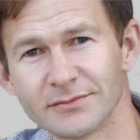France must answer for its actions in Rwanda
A report into its role in the 1994 genocide has been branded 'unacceptable'. Is there one rule for the west, another for the rest?
-

- guardian.co.uk,
- Thursday August 07 2008 19:00 BST
- Article history
It is not often that a tiny African country the size of Wales and with even fewer economic resources, has the temerity to publish a report accusing a permanent member of the UN security council of complicity, and indeed participation, in genocide. On Tuesday morning in Kigali, Rwanda, the long awaited Mucyo commission report was made public. It indicted 33 members of President Mitterrand's government and military of 1994, which reads like a who's who of luminaries and heavyweights – ex-prime ministers Dominque de Villepin and Édouard Balladur and Alain Juppé, as well as generals and colonels.
The commission's report, already condemned as "unacceptable" by France, was put together in a painstaking manner over 18 months, hearing from 166 witnesses. Though initiated by Paul Kagame's government, and chaired by Jean de Mucyo, a French-speaking former justice minister, the commission heard the witnesses in public (except when their lives were threatened), and drew their own conclusions.
As a researcher of many years standing on this subject, I was called to record a testimony myself in April 2007. The atmosphere in the converted commission hall was hushed, reverent and anticipatory. The commissioners were impressive in accepting no statement without concrete facts and a comprehensive questioning followed each witness's statement of what they had seen or knew. The transparent nature of the commission's set up, and the coverage of every day it sat by independent agencies like Reuters, made sure it fulfilled its remit of investigating thoroughly the truth behind the allegations.
And the evidence over the 18 months has been chilling, even for NGOs, researchers and journalists who knew Mitterrand's France has been aiding the Habyarimana government before the genocide that killed a million innocent men, women and children. Witnesses, some only 12 at the time, testified to being raped by French troops from Operation Turquoise in the refugee camp set up for Tutsi survivors at Cyangugu. Belgian and German witnesses spoke of the training given to the Interahamwe and the financing of the interim government by Paris. Survivors of the massacres at Bisesero spoke of being "found" by French troops who they thought had come to save them. Instead, these same "white men" drove off, leaving them to their fate as the killers laughed at them.
Many of those who gave evidence to the commission did so at great personal peril. The attitudes that gave rise to genocide are sometimes still apparent in the Hutu community and to go to the international war crimes tribunal in Arusha to testify against those on trial, or against the "great friend" of the Hutu Habyarimana government, France, is in some cases to risk death on return to your village.
What has the commission taught us? Certainly for NGOs in France, like Survie, and others like myself who have been researching this appalling episode of neocolonial disregard for the lives of Africans, the findings are not new. The testimony is deeply disturbing, as is the expected nonchalance with which the French call such accusations "unacceptable", without any attempt to answer the specific charges. Instead they fall back on the usual ploy of accusing Kagame of masterminding the plane crash that killed President Habyarimana and triggered the genocide, despite the lack of evidence for this.
The facts, though, don't lie. As Mucyo shows clearly, highly incriminating documentation remains, despite the French burning two rooms worth of their private communications with the Habyarimana government when they left Kigali. There are courageous witnesses coming forward. And there are members of the French armed forces, like Sergeant Thierry Prugnaud, who are breaking ranks and naming the officers and tactics they were told to use against the Tutsi during Operation Turquoise.
Mitterrand's flippant remark to a French journalist a year after the genocide, that "in country's like that genocide is not so important", sums up this policy of disregard and dehumanisation.
And now the west has a very real dilemma. Looking at all the evidence of the past 14 years, including Mucyo, though there is much else besides, can it stand back and pretend those French politicians and soldiers implicated in the genocide should not go the same way as Milosevic and Karadzic? Is there one rule for the west when it comes to crimes against humanity – and one for the rest of the world?
Kagame should be praised for doing what many other African nations have failed to do in calling the western abuser to public account. It took 60 years for France to apologise for voluntarily deporting 100,000 Jews to the Nazi death camps. Let us hope it does not take the Élysée the same length of time to accept its crimes in Rwanda. For the survivors, though, with their massively scarred lives, even this would be but small comfort.
--
Jean-Louis Kayitenkore
Procurement Consultant
Gsm: +250-08470205
Home: +250-55104140
P.O. Box 3867
Kigali-Rwanda
East Africa
Blog: http://www.cepgl.blogspot.com
Skype ID : Kayisa66




No comments:
Post a Comment